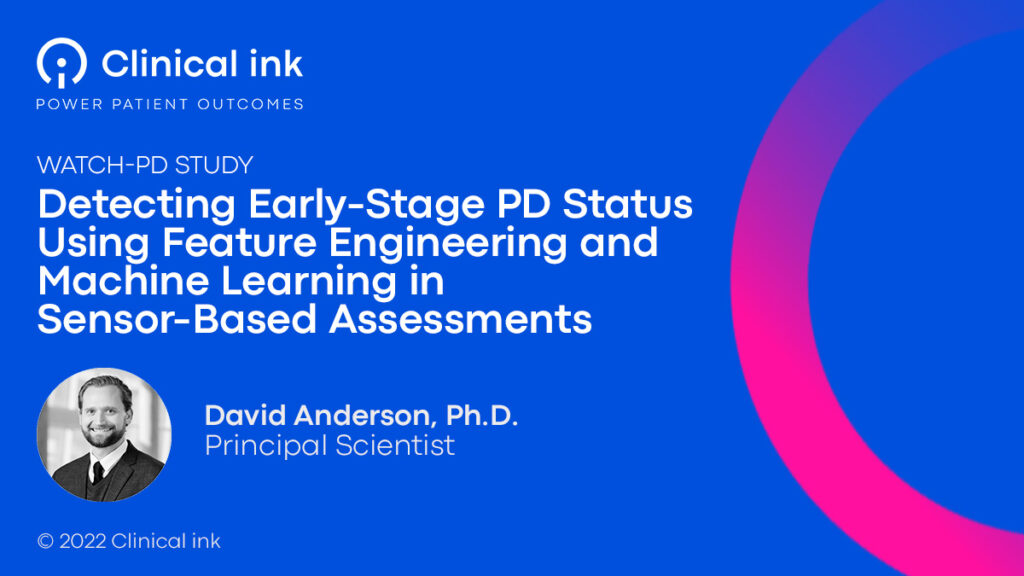WATCH-PD: Detecting Early-Stage Parkinson’s Status
Wearable and sensor technologies empower researchers to capture the full spectrum of patient health—formerly inaccessible, but now available through the computing technology of both clinical-grade as well as consumer-grade electronics.
Listen to Clinical ink Principal Scientist David Anderson review the e-Poster “WATCH-PD: Detecting Early-Stage Parkinson’s Disease Status Using Feature Engineering and Machine Learning in Sensor-Based Assessments.” The work is part of the International Congress of Parkinson’s Disease and Movement Disorders program, held in Madrid, Spain from September 15-18, 2022.
Walk through the research with Anderson, and learn how feature engineering and machine learning modeling allowed the team to accurately predict early Parkinson’s Disease (PD) status with 92.3% accuracy, 90% sensitivity, and 100% specificity, across environmental and temporal contexts.
You’ll learn more about:
- WATCH-PD study design
- The Clinical ink technology that allows for this innovative data collection, including a mobile app that integrates activities utilizing mobile, sensor and wearables technology
- Feature engineering and machine learning modeling processes that allow for improved diagnostic accuracy and that could lead to promising future patient screening tools

Author
David Anderson, Ph.D.
Principal Scientist,
Clinical ink
